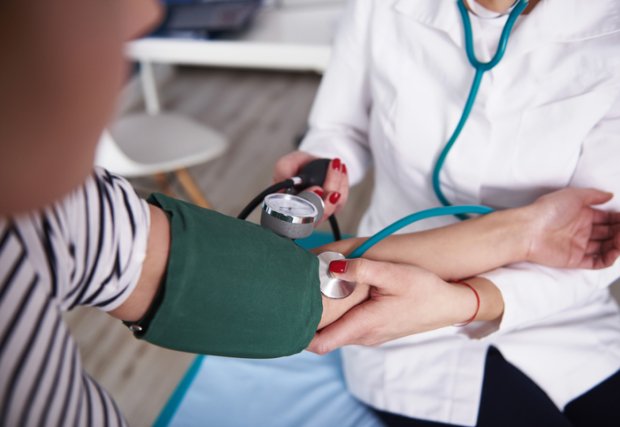High blood pressure isn’t something you can see or probably even feel, but it can have a significant impact on your health. You may have heard that blood pressure guidelines have changed in recent years, and this has impacted whose blood pressure is considered healthy. Here to discuss these changes and helpful health tips are family medicine doctors Sara Wemlinger, DO, and Kelly Duggin, MD.
Q. What do blood pressure readings mean?
Your blood pressure measures the force of blood pushing against the walls of your blood vessels. The top number of your reading (“systolic”) is the pressure in the arteries when the heart muscle contracts. The bottom number (“diastolic”) is the pressure between heartbeats. Blood pressure goes up when your heart has to work harder than normal to move blood through the arteries and veins.
Q. How have the guidelines changed?
Updates to blood pressure guidelines in 2017 lowered the numbers for the diagnosis of high blood pressure to readings of 130/80 mm Hg or higher. That means more people are now classified as having high blood pressure, or hypertension. Having this condition puts people at greater risk of having a possible stroke or heart attack and other potentially serious health issues.
Q. Will I feel different if my blood pressure is high?
There are not usually obvious symptoms of high blood pressure. That’s why it’s important to attend your regular doctor visits and know your numbers. According to the American Heart Association®, nearly half of American adults have high blood pressure, and many people don’t know they have it.
Q. What steps can I take to get healthier?
Watching your weight and losing extra pounds can be good for your blood pressure and your overall health. Try to reduce your sodium intake and avoid processed foods. Instead, opt for choices like whole grains, fruits and vegetables. Getting regular exercise* and decreasing your stress can also help, as can limiting your alcohol consumption. Try to find activities you enjoy and take time to relax.
Sara Wemlinger, DO, is a family medicine doctor and has a Certification of Added Qualification (CAQ) in Sports Medicine at North River Family Health Center in Palmetto. For an appointment call 941-722-7785.
Kelly Duggin, MD, is a family medicine doctor at Lakewood Ranch Medical Group in Bradenton. For an appointment call 941-782-2800.
| BLOOD PRESSURE CATEGORY | SYSTOLIC mm Hg (UPPER #) | DIASTOLIC mm Hg (LOWER #) | |
|---|---|---|---|
| Normal | less than 120 | and | less than 80 |
| Elevated | 120 – 129 | and | less than 80 |
| High Blood Pressure (Hypertension) Stage 1 |
130 – 139 | or | 80 – 89 |
| High Blood Pressure (Hypertension) Stage 2 |
140 or higher | or | 90 or higher |
| Hypertensive Crisis (consult your doctor immediately) |
Higher than 180 | and/or | Higher than 120 |
*Before starting a new exercise program, consult a doctor.

